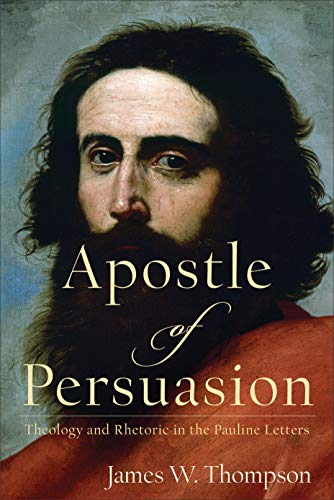Q. One of the more recent trends in the rhetorical analysis of the Pastoral is the point out that in all three documents we have incomplete syllogisms—i.e. enthymemes, and that one needs to fill in the missing premise to understand the flow of the argument. Otherwise, it appears to be a grab bag of ethical enjoinders that are unconnected, according to some. Are you familiar with this argument, and if so, what do you think?
A. Yes, I have read several articles on enthymemes, and I believe that they play a significant part in any argument, including Paul’s. I mention enthymemes as a mode of argumentation in the book, but I probably did not address them adequately in my book.
——-
Your final paragraph on p. 271 strikes exactly the right balance it seems to me: “To interpret Paul is to acknowledge both the theological and rhetorical layers of his communication, which exist in a dialectical relationship to each other. Inasmuch as he has firm convictions, one cannot reduce his theologizing to mere strategy. Nor is he a theologian whose ideas develop apart from the dialogue with his churches. Starting with his basic convictions, he both makes theological arguments and speaks for rhetorical effect with the larger aim of ensuring the transformation of his churches into the image of Christ.”
To this I can only say a hearty amen. I only wish more Pauline scholars recognized these things instead of pitting theology over against rhetoric. It’s not a matter of either/or, but both/and.











